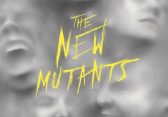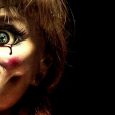Horrors involving possessions or exorcisms are, arguably, the most popular of the genre. As a result, it becomes harder and harder to tap into something original when telling a story that involves this. The Taking of Deborah Logan admirably begins on a relatively fresh path, but quickly settles into the well trodden tropes of countless similar films that proceeded it.
Shot with handheld cameras, The Taking of Deborah Logan follows a group of film-makers shooting a documentary on the effects of Alzheimer’s disease on senior citizen Deborah Logan and the psychological effects it has on her daughter, Sarah. What starts as a touching feature on the devastating decline of a human being soon becomes something far more sinister as events occur that defy explanation and make those involved question whether it’s the condition which is making her act so strangely or something more terrifying. There’s no denying that the opening 20 minutes capture your attention greater than the majority of recent horrors. The emotional connection with Logan, played expertly and memorably by Jill Larson, is surprisingly deep, and no doubt will resonate further with those who know people that have suffered with Alzheimer’s. Fortunately, and wisely, the film never trivialises or underestimates the disease. While initially using it as a plot device, writers Adam Robitel and Gavin Heffernan have taken great care not to gloss over just how serious and traumatic Alzheimer’s can be.
As previously mentioned, Jill Larson is far and away the shining beacon of the picture. Her performance is utterly believable, even when the film ventures into territory that is far from it. Whether she’s required to be the sweet old lady struggling with day to day tasks or a snarling, demonic creature, Larson pulls off the personality switch flawlessly. Through a combination of the talents of Larson and her own shortcomings, supporting actress Anne Ramsey as her daughter Sarah doesn’t leave the same impression. Her performance comes across as forced, which is all the more obvious when shooting in this particular faux-documentary format; it detracts and distracts from the otherwise largely engaging first act. The four person film crew don’t leave any real mark either, putting in a passable effort as the stricken observers.
In terms of plot, Deborah Logan has good intentions, but becomes too convoluted for its own good. Once it becomes obvious there’s more to Logan’s unusual behaviour than what the initial diagnosis claimed, the story takes a turn into ritualistic practices and logic is thrown out the window. It has to be said, the general suggested idea is impressive, and furthers the praise given to the writers for their attempt at originality. Unfortunately, nothing particularly new is offered, and scares mainly consist of loud bangs and distorted faces with a few successful occasions of tension-building.
Originality aside, fans of found footage and possession movies will find a lot to like in The Taking of Deborah Logan. The sublime effort given by the lead actress is a huge plus point, but overall it’s a recommended watch for those who don’t mind when logic is sacrificed for conventional scares.



























